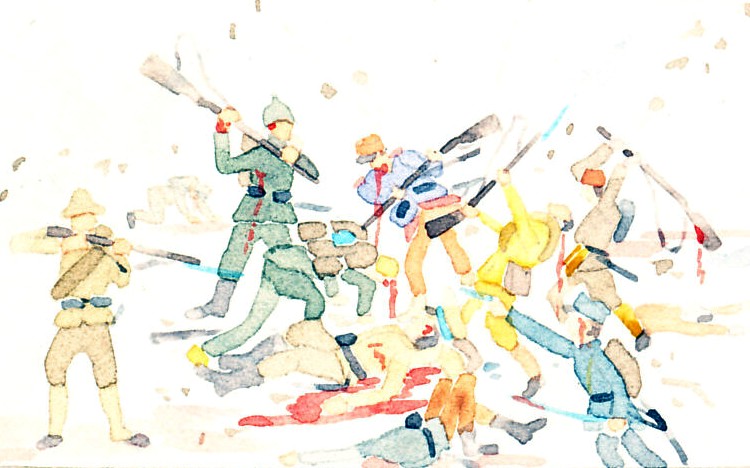From The Great War magazine, Part 34: Map of the Turkish invasion of Russia in the Caucasus at the end of 1914, ending in defeat at the Battle of Sarikamish.

The Turkish invasion of the Caucasus
Key map of the passes by which the Turkish forces invaded Russian territory. They suffered utter rout at Sarykamysch (or Sarykamish), and at Ardahan.
Other views:
Larger
